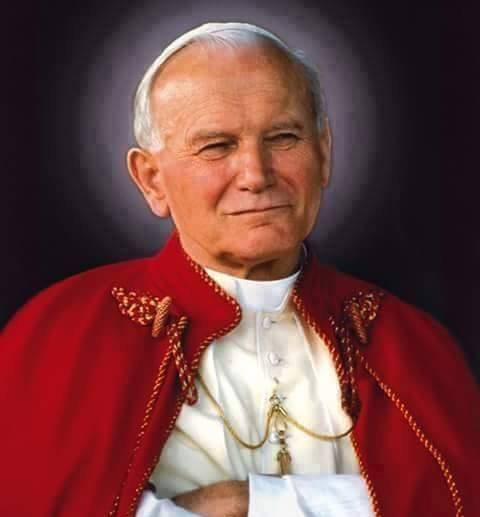Wednesday Reflection, Week 5
This week we turn to Pope Emeritus Benedict XVI and his Lenten Message for 2012.
“Let us be concerned for each other, to stir a response in love and good works” (Heb 10:24)
Dear Brothers and Sisters,
The Lenten season offers us once again an opportunity to reflect upon the very heart of Christian life: charity. This is a favourable time to renew our journey of faith, both as individuals and as a community, with the help of the word of God and the sacraments. This journey is one marked by prayer and sharing, silence and fasting, in anticipation of the joy of Easter.
This year I would like to propose a few thoughts in the light of a brief biblical passage drawn from the Letter to the Hebrews:“ Let us be concerned for each other, to stir a response in love and good works”. These words are part of a passage in which the sacred author exhorts us to trust in Jesus Christ as the High Priest who has won us forgiveness and opened up a pathway to God. Embracing Christ bears fruit in a life structured by the three theological virtues: it means approaching the Lord “sincere in heart and filled with faith” (v. 22), keeping firm “in the hope we profess” (v. 23) and ever mindful of living a life of “love and good works” (v. 24) together with our brothers and sisters. The author states that to sustain this life shaped by the Gospel it is important to participate in the liturgy and community prayer, mindful of the eschatological goal of full communion in God (v. 25). Here I would like to reflect on verse 24, which offers a succinct, valuable and ever timely teaching on the three aspects of Christian life: concern for others, reciprocity and personal holiness.
-
“Let us be concerned for each other”: responsibility towards our brothers and sisters.
This first aspect is an invitation to be “concerned”: the Greek verb used here is katanoein, which means to scrutinize, to be attentive, to observe carefully and take stock of something. We come across this word in the Gospel when Jesus invites the disciples to “think of” the ravens that, without striving, are at the centre of the solicitous and caring Divine Providence (cf. Lk 12:24), and to “observe” the plank in our own eye before looking at the splinter in that of our brother (cf. Lk 6:41). In another verse of the Letter to the Hebrews, we find the encouragement to “turn your minds to Jesus” (3:1), the Apostle and High Priest of our faith. So the verb which introduces our exhortation tells us to look at others, first of all at Jesus, to be concerned for one another, and not to remain isolated and indifferent to the fate of our brothers and sisters. All too often, however, our attitude is just the opposite: an indifference and disinterest born of selfishness and masked as a respect for “privacy”. Today too, the Lord’s voice summons all of us to be concerned for one another. Even today God asks us to be “guardians” of our brothers and sisters (Gen 4:9), to establish relationships based on mutual consideration and attentiveness to the well-being, the integral well-being of others. The great commandment of love for one another demands that we acknowledge our responsibility towards those who, like ourselves, are creatures and children of God. Being brothers and sisters in humanity and, in many cases, also in the faith, should help us to recognize in others a true alter ego, infinitely loved by the Lord. If we cultivate this way of seeing others as our brothers and sisters, solidarity, justice, mercy and compassion will naturally well up in our hearts. The Servant of God Pope Paul VI stated that the world today is suffering above all from a lack of brotherhood: “Human society is sorely ill. The cause is not so much the depletion of natural resources, nor their monopolistic control by a privileged few; it is rather the weakening of brotherly ties between individuals and nations” (Populorum Progressio, 66).
Concern for others entails desiring what is good for them from every point of view: physical, moral and spiritual. Contemporary culture seems to have lost the sense of good and evil, yet there is a real need to reaffirm that good does exist and will prevail, because God is “generous and acts generously” (Ps 119:68). The good is whatever gives, protects and promotes life, brotherhood and communion. Responsibility towards others thus means desiring and working for the good of others, in the hope that they too will become receptive to goodness and its demands. Concern for others means being aware of their needs. Sacred Scripture warns us of the danger that our hearts can become hardened by a sort of “spiritual anesthesia” which numbs us to the suffering of others. The Evangelist Luke relates two of Jesus’ parables by way of example. In the parable of the Good Samaritan, the priest and the Levite “pass by”, indifferent to the presence of the man stripped and beaten by the robbers (cf. Lk 10:30-32). In that of Dives and Lazarus, the rich man is heedless of the poverty of Lazarus, who is starving to death at his very door (cf. Lk 16:19). Both parables show examples of the opposite of “being concerned”, of looking upon others with love and compassion. What hinders this humane and loving gaze towards our brothers and sisters? Often it is the possession of material riches and a sense of sufficiency, but it can also be the tendency to put our own interests and problems above all else. We should never be incapable of “showing mercy” towards those who suffer. Our hearts should never be so wrapped up in our affairs and problems that they fail to hear the cry of the poor. Humbleness of heart and the personal experience of suffering can awaken within us a sense of compassion and empathy. “The upright understands the cause of the weak, the wicked has not the wit to understand it” (Prov 29:7). We can then understand the beatitude of “those who mourn” (Mt 5:5), those who in effect are capable of looking beyond themselves and feeling compassion for the suffering of others. Reaching out to others and opening our hearts to their needs can become an opportunity for salvation and blessedness.
“Being concerned for each other” also entails being concerned for their spiritual well-being. Here I would like to mention an aspect of the Christian life, which I believe has been quite forgotten: fraternal correction in view of eternal salvation. Today, in general, we are very sensitive to the idea of charity and caring about the physical and material well-being of others, but almost completely silent about our spiritual responsibility towards our brothers and sisters. This was not the case in the early Church or in those communities that are truly mature in faith, those which are concerned not only for the physical health of their brothers and sisters, but also for their spiritual health and ultimate destiny. The Scriptures tell us: “Rebuke the wise and he will love you for it. Be open with the wise, he grows wiser still, teach the upright, he will gain yet more” (Prov 9:8ff). Christ himself commands us to admonish a brother who is committing a sin (cf. Mt 18:15). The verb used to express fraternal correction – elenchein – is the same used to indicate the prophetic mission of Christians to speak out against a generation indulging in evil (cf. Eph 5:11). The Church’s tradition has included “admonishing sinners” among the spiritual works of mercy. It is important to recover this dimension of Christian charity. We must not remain silent before evil. I am thinking of all those Christians who, out of human regard or purely personal convenience, adapt to the prevailing mentality, rather than warning their brothers and sisters against ways of thinking and acting that are contrary to the truth and that do not follow the path of goodness. Christian admonishment, for its part, is never motivated by a spirit of accusation or recrimination. It is always moved by love and mercy, and springs from genuine concern for the good of the other. As the Apostle Paul says: “If one of you is caught doing something wrong, those of you who are spiritual should set that person right in a spirit of gentleness; and watch yourselves that you are not put to the test in the same way” (Gal 6:1). In a world pervaded by individualism, it is essential to rediscover the importance of fraternal correction, so that together we may journey towards holiness. Scripture tells us that even “the upright falls seven times” (Prov 24:16); all of us are weak and imperfect (cf. 1 Jn 1:8). It is a great service, then, to help others and allow them to help us, so that we can be open to the whole truth about ourselves, improve our lives and walk more uprightly in the Lord’s ways. There will always be a need for a gaze which loves and admonishes, which knows and understands, which discerns and forgives (cf. Lk 22:61), as God has done and continues to do with each of us.
-
“Being concerned for each other”: the gift of reciprocity.
This “custody” of others is in contrast to a mentality that, by reducing life exclusively to its earthly dimension, fails to see it in an eschatological perspective and accepts any moral choice in the name of personal freedom. A society like ours can become blind to physical sufferings and to the spiritual and moral demands of life. This must not be the case in the Christian community! The Apostle Paul encourages us to seek “the ways which lead to peace and the ways in which we can support one another” (Rom 14:19) for our neighbour’s good, “so that we support one another” (15:2), seeking not personal gain but rather “the advantage of everybody else, so that they may be saved” (1 Cor 10:33). This mutual correction and encouragement in a spirit of humility and charity must be part of the life of the Christian community.
The Lord’s disciples, united with him through the Eucharist, live in a fellowship that binds them one to another as members of a single body. This means that the other is part of me, and that his or her life, his or her salvation, concern my own life and salvation. Here we touch upon a profound aspect of communion: our existence is related to that of others, for better or for worse. Both our sins and our acts of love have a social dimension. This reciprocity is seen in the Church, the mystical body of Christ: the community constantly does penance and asks for the forgiveness of the sins of its members, but also unfailingly rejoices in the examples of virtue and charity present in her midst. As Saint Paul says: “Each part should be equally concerned for all the others” (1 Cor 12:25), for we all form one body. Acts of charity towards our brothers and sisters – as expressed by almsgiving, a practice which, together with prayer and fasting, is typical of Lent – is rooted in this common belonging. Christians can also express their membership in the one body which is the Church through concrete concern for the poorest of the poor. Concern for one another likewise means acknowledging the good that the Lord is doing in others and giving thanks for the wonders of grace that Almighty God in his goodness continuously accomplishes in his children. When Christians perceive the Holy Spirit at work in others, they cannot but rejoice and give glory to the heavenly Father (cf. Mt 5:16).
-
“To stir a response in love and good works”: walking together in holiness.
These words of the Letter to the Hebrews (10:24) urge us to reflect on the universal call to holiness, the continuing journey of the spiritual life as we aspire to the greater spiritual gifts and to an ever more sublime and fruitful charity (cf. 1 Cor 12:31-13:13). Being concerned for one another should spur us to an increasingly effective love which, “like the light of dawn, its brightness growing to the fullness of day” (Prov 4:18), makes us live each day as an anticipation of the eternal day awaiting us in God. The time granted us in this life is precious for discerning and performing good works in the love of God. In this way the Church herself continuously grows towards the full maturity of Christ (cf. Eph 4:13). Our exhortation to encourage one another to attain the fullness of love and good works is situated in this dynamic prospect of growth.
Sadly, there is always the temptation to become lukewarm, to quench the Spirit, to refuse to invest the talents we have received, for our own good and for the good of others (cf. Mt 25:25ff.). All of us have received spiritual or material riches meant to be used for the fulfilment of God’s plan, for the good of the Church and for our personal salvation (cf. Lk 12:21b; 1 Tim 6:18). The spiritual masters remind us that in the life of faith those who do not advance inevitably regress. Dear brothers and sisters, let us accept the invitation, today as timely as ever, to aim for the “high standard of ordinary Christian living” (Novo Millennio Ineunte, 31). The wisdom of the Church in recognizing and proclaiming certain outstanding Christians as Blessed and as Saints is also meant to inspire others to imitate their virtues. Saint Paul exhorts us to “anticipate one another in showing honour” (Rom 12:10).
In a world which demands of Christians a renewed witness of love and fidelity to the Lord, may all of us feel the urgent need to anticipate one another in charity, service and good works (cf. Heb 6:10). This appeal is particularly pressing in this holy season of preparation for Easter. As I offer my prayerful good wishes for a blessed and fruitful Lenten period, I entrust all of you to the intercession of Mary Ever Virgin and cordially impart my Apostolic Blessing.
© Copyright 2011 – Libreria Editrice Vaticana

























